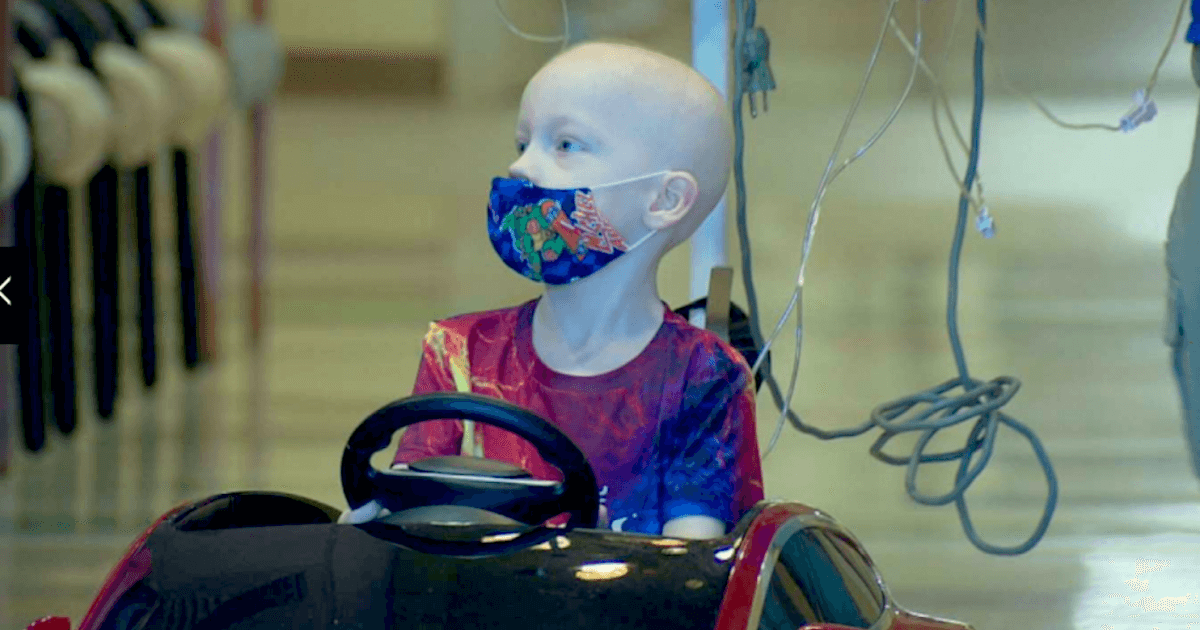When 4-year-old Ty Davis’s ‘tummy ache’ turned severe on a night in late March, his parents worried about taking him the emergency room. News of the coronavirus outbreak left them wondering if a hospital visit would only make matters worse.
Read More"I punched my truck a couple of times, threw myself on the ground, what do you do?" said his grief-stricken father, Terrence.
Since then, Ty, who spent his fifth birthday in the hospital, has endured five rounds of high dose chemotherapy and major surgeries. "He's amazing, he's a very tough kid, he's got a great attitude," said Dr. Clark.
RELATED: Legendary Surfer Kelly Slater Is Raising Money So 4-Year-Old Nixon Can Get Cancer Treatment
While Ty faces two stem cell transplants and months of drug therapy, his mother says, “he's already bouncing back."
"I can't thank God enough," said his father.
Pandemic Impacts Cancer Diagnoses
Across the country, oncologists tell SurvivorNet they are extremely concerned that people are avoiding treatments due to fear of coronavirus exposure.
RELATED: Coronavirus Guide For Cancer Patients
"People are afraid to leave the house,” says Dr. Abraham Chachoua, a medical oncologist specializing in lung cancer at NYU Langone Health's Perlmutter Cancer Center. “People who have serious, life-threatening illnesses are not seeking medical attention in a timely fashion."
In response to the pandemic, some cancer centers have implemented virtual clinics: At NYU Langone Health's Perlmutter Cancer Center's new Suspicion of Cancer Virtual Clinic, patients will be able to explain symptoms with nurse practitioners over a video call and may be referred to other doctors for further discussion.
“Don't ignore symptoms that would be significant, just call us," Dr. Chachoua says.
About Childhood Neuroblastoma
Neuroblastoma accounts for about seven to 10% of all pediatric cancers in the United States with about 800 new cases identified each year. It accounts for more than 50 percent of cancers diagnosed under the age of one, according to the Children's Hospital of Philadelphia (CHOP).
RELATED: A Teenage Love Story, And Getting Through Cancer: Meet Sophie and Haydn
Neuroblastoma develops from nerve cells in the fetus. It often affects the small glands above the kidneys, called adrenal glands. Tumors appear most often in the abdomen but can be found in the chest, neck or spine. Some forms of this cancer will spontaneously disappear on their own, but for most children, surgery, chemotherapy and/or radiation is required.
Jayne Wexler, an NYC-based photographer, says childhood cancer impacts the whole family — and places special challenges on marriages.
Signs of neuroblastoma vary but a child with an abdominal tumor may experience bellyaches, weight loss, or abdominal swelling. Some children only complain of general aches and pains.
About half of neuroblastoma patients have “high-risk disease” which has spread to other parts of the body. Treatment may include a combination of chemotherapy, surgery, and radiation therapy including proton therapy, as well as high-dose chemotherapy followed by a stem cell transplant. Immunotherapy, which uses the body's own immune system to fight the disease, may also be effective in treating neuroblastoma.
Learn more about SurvivorNet's rigorous medical review process.

